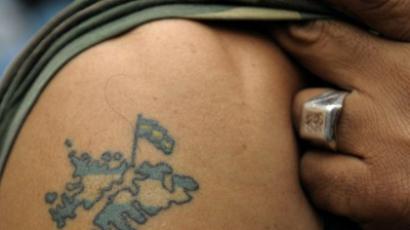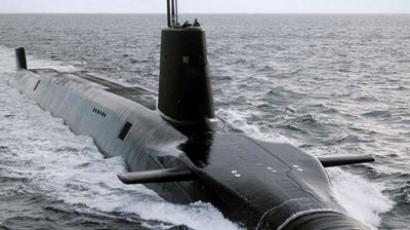Over a barrel: UK clings to Falklands colony
As the 30th anniversary of the Falklands War nears, the dispute over the islands is being fueled by British plans for oil exploration in the region. The end of the conflict seems even farther as Argentina claims the UK is militarizing the islands.
The British exploration companies, inspired with their initial successes, are boosting efforts to find more oil in the Falklands shelf. One of the companies, Falkland Oil and Gas Ltd. (FOGL), has agreed the terms of a farm-out deal with an unnamed partner, according to a statement released on Tuesday. Thus FOGL has secured an option to farm out a 25 per cent stake in its Falklands exploration licenses, which allows it to fund expanded drilling plans on the South Atlantic archipelago's basins. The news follows the announcement by the Argentine Foreign Minister calling the UK oil exploration activities near the Falklands “illegal”. The minister said that Argentina will bring civil and criminal charges to punish the explorers. Furthermore, companies providing logistical and financial support to the exploitation of Falklands’ oil will also be included in the suits, according to the minister.Analysts predict that the British pocket will become $10.5 billion fuller after another British company, Rockhopper Exploration PLC, begins operations in the Sea Lion oil field to the north of the islands. The company is currently looking for a $2 billion partner to start producing the crude, while Borders & Southern Petroleum and Falkland Oil and Gas Ltd. are drilling exploratory wells south of the islands.The southern basin might hold 10 times more oil than the Sea Lion’s estimated 450 million barrels, according to analysts from the London-based Edison Investment Research firm, AP reports.Klaus Dodds, a geopolitics professor the University of London, told RT that the recent exploration of the Falklands oil added more fuel to the already tense dispute over the islands.“As oil and gas prospecting has become more widespread in terms of exposure than I think it has helped to ratchet up the crisis between Britain and Argentina,” he said. “From Argentina's point of view, if the Falklands and the waters to the north contain lots of oil and gas reserves that were commercially exploitable, then of course there is a fear that Britain and the Falkland Islands community would never wish to negotiate about the future.”
'Militarization' of Falklands déjà vu
In the row over the Falklands, which Argentina calls Las Malvinas and claims as its territory, the South American country enjoys the overwhelming regional support. On Tuesday, Peru has canceled a port call by a British Royal Navy frigate HMS Montrose scheduled for later this week in a show of solidarity with Argentina over the islands. The country’s foreign minister announced that the decision was made “in the spirit of solidarity commitments” undertaken by UNASUR, the union of South American nations. The economic union MERCASUR, including UNASUR members Argentina, Brazil, Columbia and Paraguay, had proclaimed earlier it was banning Falklands ships from entering its ports. British officials said that they regretted the Peruvian decision. The UK Foreign Office said that the country’s officials could have addressed the issue with the British Foreign Minister Jeremy Browne while he was in Peru last week, but they did not.Argentina increasingly objects to what it calls the UK’s “militarization” of the dispute over the Falklands. The country claims that its rival has recently deployed a submarine carrying nuclear weapons to South American waters. The United Kingdom has yet to confirm the report. The British, however, have indeed deployed a new generation military ship HMS Dauntless to the Falklands, which, in conjunction with Prince William’s tour of duty on the islands as a search-and-rescue pilot, has angered the British rivals even more.In her speech to comment on the developments, Argentine President Cristina Fernandez de Kirchner said that by sending the destroyer ship and “heir to the throne” in military uniform to the Falklands, Britain is “once again” militarizing the South Atlantic. Despite the Argentine wording, UK officials have called the recent deployments a “routine” having nothing to do with saber-rattling ahead of the 30th anniversary of the Falklands War. “Whether there is an anniversary is completely irrelevant to us,” John Glen, of the British Parliament’s Defense Select Committee, told RT. “It genuinely is routine. There is no attempt to escalate anything, but I do recognize the Argentine president is seeking to put a different interpretation on it.”The Falkland Islands have been the subject of the long-lasting dispute between the United Kingdom and Argentina, leading to a military conflict almost 30 years ago. On April 2, 1982, Argentina tried to occupy the islands, which the United Kingdom has controlled since 1833. Six hundred and forty-nine Argentines and 255 British were killed in the subsequent 72-day war, which brought victory to the United Kingdom.














